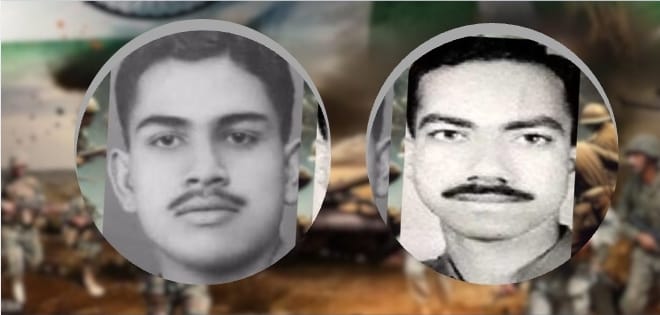
During my childhood, I heard in Deoband that Haji Mastan, a notorious smuggler with the image of Robinhood, had sought permission to shoot a film at Darul Uloom, the famous Islamic educational institution in Uttar Pradesh. The film was based on a touching story of the undivided India and was about a Hindu woman adopting a Muslim child and raising him along with her son.
After the Partition, the Muslim boy migrated to Pakistan. Both boys became pilots in their respective countries' air forces. They come face to face in the Indo-Pak war of 1965, where their planes collide and both die. The last scene of the film is heart-wrenching—the mother is seen carrying the bodies of both her sons on her shoulders.
I was reminded of this incident when I watched a vlog by retired Pakistani Lieutenant General Amjad Shoaib, in which he shared a true incident.
He told how Sahibzada Yakub Khan, who later became Pakistan’s foreign minister, was wounded by his elder brother, Yunus Khan, on the battlefield, at the hands of a brother.
Sahibzada Yakub Khan was born in Rampur in a Nawabi family. Before Partition, he and his brother Yunus Khan were officers in the British Army. After Partition, Yakub went to the newly created Pakistan, and Yunus stayed in India.
During the first Indo-Pak war of 1948, the two came face to face at the Kashmir border at the rank of Major. During the firing, Yunus Khan shot at a Pakistani officer—when he realised that the man was none other than his younger brother Yakub, he shouted, "Don't mourn, Chotey (little one). We are soldiers, and we have done our duty."
When General Manekshaw, a top officer of the Indian Army at the time, learned about this incident, he praised Yunus Khan's courage and expressed sympathy for Yakub.
Years later, almost 36 years later, the two brothers met at Yakub's wedding in Kolkata. They hugged and cried—a tearful reunion of brothers separated by war.
This incident makes it clear that questioning the patriotism of Indian Muslims is not only wrong but also unjust. Time and again history has shown—whether it is Brigadier Usman, Param Vir Chakra winner Abdul Hamid, or the Muslim soldiers martyred in Kargil—Indian Muslims have protected the country by putting their lives at stake.
People with fundamentalist ideologies, be they soft or hard, are unable to understand that Indian Muslims were not 'internal enemies' even in 1947 and they are not so even today.
They are spreading poison that neither benefits the country nor religion. After all, who would be foolish enough to think himself safe from the fire in his neighbor's house?
Partition not only robbed Indian Muslims of their leadership but also deprived them of the educated class and family ties. Even today, there are thousands of families divided across the borders, who have not seen each other for years.
Children of Indian-Pakistani origin born in countries like America and Britain also face visa difficulties to meet their grandparents.
Late MP Syed Shahabuddin rightly said, “Indian Muslims are the real casualties of Partition.”
ALSO READ: Muslims always rebuffed Pak's war cry of 'Islam in danger' to attack India
The story of Major Yunus Khan, who was forced to fire at his brother in battle while performing the duty of a soldier, has become a symbol of the complex identity of Indian Muslims and true patriotism. Hundreds of such Muslims have shed their blood for this soil, and this is our proud history.
